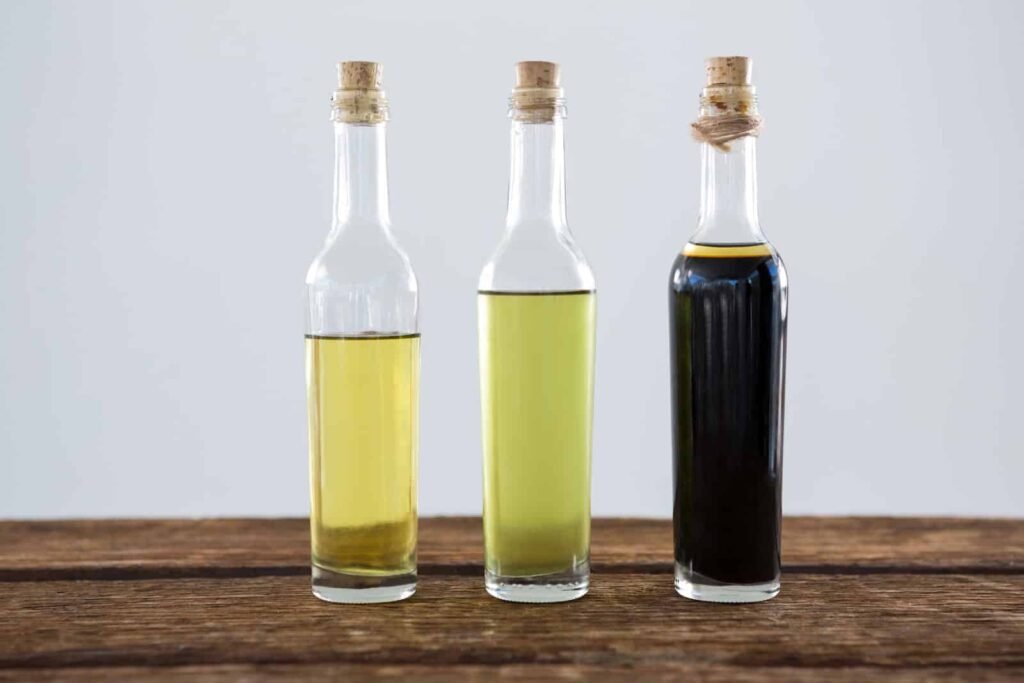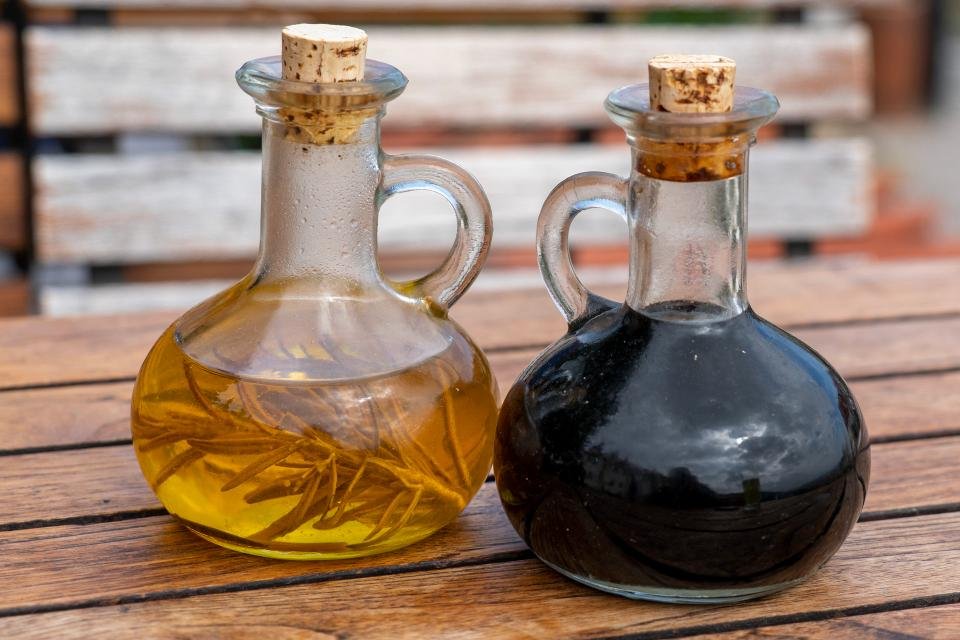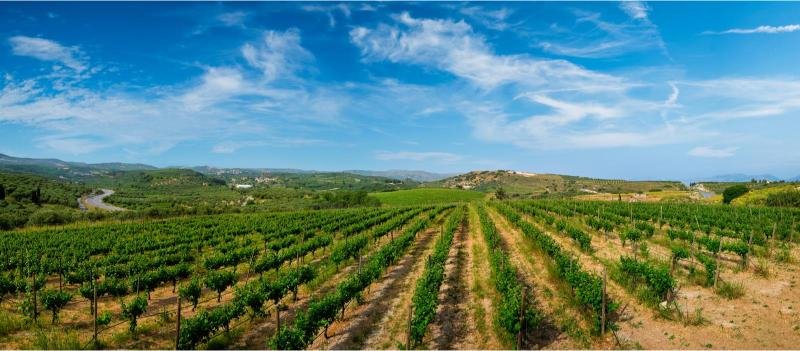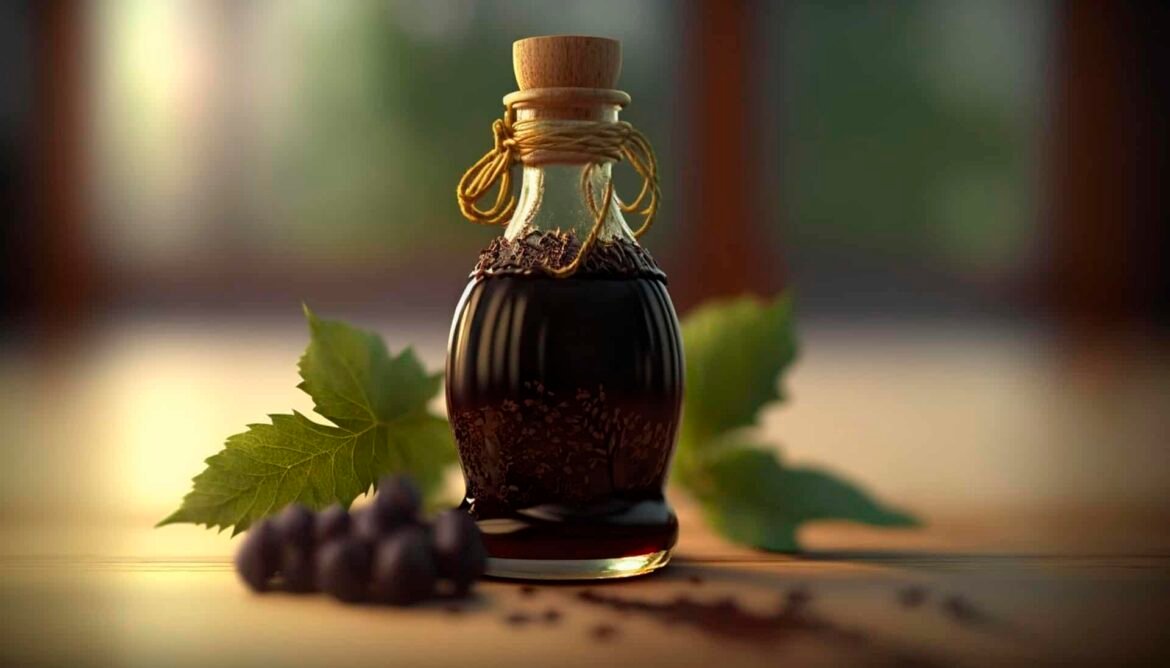Introduction to Balsamic Vinegar and Gluten-Free Dieting
Balsamic vinegar is a rich, complex condiment treasured by chefs and home cooks alike. Originating from Italy, this vinegar is made from concentrated grape must, which is fermented and aged over several years. The result is a sweet, tangy elixir that enhances salads, marinades, and even desserts.
- Introduction to Balsamic Vinegar and Gluten-Free Dieting
- What is Gluten and Where is it Found?
- The Composition of Balsamic Vinegar
- Cross-Contamination Risks in Vinegar Production
- Reading Labels: Identifying Hidden Gluten in Condiments
- Safe Brands of balsamic vinegar gluten-free
- DIY Balsamic Vinegar: Ensuring a Gluten Free Condiment
- Conclusion: Navigating a Gluten-Free Diet with Confidence
- Frequently Asked Questions
- Q: Is balsamic vinegar gluten free?
- Q: Can those with gluten intolerance safely consume balsamic glaze?
- Q: Are there any differences in gluten content between aged and young balsamic vinegar?
- Q: How can I be sure a bottle of balsamic vinegar is safe for a gluten-free diet?
- Q: Is it safe to use balsamic vinegar in salad dressing for someone with gluten intolerance?
- Q: Can the flavorings added to balsamic vinegar contain gluten?
- Q: Are oil and vinegar dressings always gluten free?
- Q: How can the use of balsamic vinegar in cooking support a gluten-free and vegan diet?
Gluten-free dieting involves avoiding all foods that contain gluten, a protein found in wheat, barley, and rye. For those with celiac disease or gluten sensitivity, adhering to this diet is crucial for maintaining health. Understanding which foods and condiments are naturally gluten-free is key to managing a gluten-free lifestyle.
What is Gluten and Where is it Found?
Gluten is a family of proteins commonly found in grains such as wheat, barley, rye, and triticale—a cross between wheat and rye. This substance acts as a glue that holds foods together, giving them shape and a chewy texture. It is typically present in:
- Breads and baked goods
- Pastas and cereals
- Soups and sauces
- Malt and food coloring
- Beer and other malt beverages

Additionally, gluten can appear in less obvious products like dressings or condiments, hence the need for careful evaluation of ingredients for those following a gluten-free diet.
The Composition of Balsamic Vinegar
Traditional balsamic vinegar is crafted from grape must, which is freshly crushed grape juice that includes all the skins, seeds, and stems. This must is then fermented over years, sometimes decades, in a series of wooden barrels.
True balsamic vinegar of Modena contains no added ingredients, ensuring a pure product. However, not all balsamic vinegars on the market adhere to this stringent production process. Some commercial varieties may incorporate additional substances such as caramel coloring or thickeners, which could introduce gluten. It’s crucial to check labels carefully for additives that may not be gluten-free.
Cross-Contamination Risks in Vinegar Production
In balsamic vinegar production, cross-contamination with gluten-containing substances can occur, particularly in facilities processing products like malt vinegar, which contain gluten. Risks include:
- Shared Equipment: If equipment is used for both gluten-containing and gluten-free products, there’s a risk that residues could cause contamination.
- Storage: Storage vessels for raw ingredients might be compromised if previously used for gluten-containing items.
- Aerosolization: Flour or other gluten particles in the air can settle into open vinegar vats.
- Human Error: Inaccurate labeling or mishandling by staff may lead to accidental contamination.
Measures such as dedicated processing lines and thorough cleaning procedures are critical to ensure the safety of gluten-free vinegar like balsamic.

Reading Labels: Identifying Hidden Gluten in Condiments
When navigating a gluten-free diet, meticulously reading labels for hidden gluten is crucial, especially in condiments like balsamic vinegar. Gluten-containing ingredients can be disguised under several names. Look out for:
- Malt, which originates from barley
- Modified food starch if wheat source is not specified
- Hydrolyzed vegetable protein unless made from soy or corn
- Flavorings that may derive from wheat, barley, or rye
Always check for a gluten-free certification or a clear statement on the label that indicates the condiment is gluten-free. When in doubt, contact the manufacturer directly for verification to ensure your balsamic vinegar selection is safe for your gluten-free regimen.
Safe Brands of balsamic vinegar gluten-free
Many brands of balsamic vinegar are naturally gluten-free, meaning they do not contain any wheat, barley, or rye. However, for individuals with celiac disease or gluten sensitivity, it’s crucial to choose brands that ensure their products are free from cross-contamination during processing. Here is a list of trusted brands that offer gluten-free balsamic vinegar:
- Colavita: Certified by the Gluten Intolerance Group, this brand’s balsamic vinegar is safe for a gluten-free diet.
- De Nigris: This company guarantees their balsamic vinegars are gluten-free.
- Kirkland Signature: Found at Costco, their balsamic vinegar is labeled gluten-free.
- Monari Federzoni: A well-known brand that confirms its vinegar is gluten-free.
- Bertolli: They provide a range of vinegars with gluten-free options.
Before purchasing, always check the label for a gluten-free certification or statement to ensure safety.
DIY Balsamic Vinegar: Ensuring a Gluten Free Condiment
When crafting homemade balsamic vinegar to guarantee it adheres to a gluten-free diet, individuals must vigilantly select ingredients devoid of gluten contaminants. Traditional balsamic vinegar consists of pure grape must, which is inherently free from gluten. Thus, procuring grapes from reliable sources that have not been exposed to gluten in processing is imperative.
- Choose Gluten-Free Grapes: Ensure the grapes or grape must is certified gluten-free.
- Sanitization: Clean all equipment thoroughly to eradicate any potential gluten residue.
- Fermentation Process: Use gluten-free yeast, if required, as some yeasts may be cultivated on gluten-containing media.
- Storage: Store the vinegar in clean, uncontaminated containers.
By adhering to these measures, one can create a safe, gluten-free balsamic vinegar in the comfort of their own kitchen.

Conclusion: Navigating a Gluten-Free Diet with Confidence
Embracing a gluten-free lifestyle necessitates a vigilant approach to food choices. With balsamic vinegar, individuals can be assured of its general gluten-free status. However, one must remain diligent, as the potential for cross-contamination or additives exists.
Reading labels, seeking certified gluten-free options, and consulting with manufacturers when in doubt are key strategies. Armed with knowledge and caution, those on a gluten-free diet can enjoy the richness of balsamic vinegar while maintaining their health and well-being.
Frequently Asked Questions
Q: Is balsamic vinegar gluten free?
A: Yes, traditional balsamic vinegar is generally considered gluten free. Balsamic vinegar is made from grape must (crushed grape juice, including the skins, seeds, and stems) that is fermented and aged in wooden casks.
Since the basic ingredients are grapes and the production process does not typically involve any gluten-containing substances, traditional balsamic vinegar (aceto balsamico tradizionale) and certified products such as aceto balsamico tradizionale di Modena IGP should be safe for those sensitive to gluten.
However, caution should be exercised with flavored or cheaper varieties, which may contain added ingredients that could be a source of gluten.
Q: Can those with gluten intolerance safely consume balsamic glaze?
A: While pure balsamic vinegar is generally safe for those with gluten intolerance, balsamic glaze may sometimes contain added sugar, thickeners, or flavorings that could include gluten ingredients. It is important for those with gluten sensitivities or celiac disease to check the label for any mention of gluten-containing ingredients or to opt for products that specifically state they are gluten free.
Q: Are there any differences in gluten content between aged and young balsamic vinegar?
A: The aging process of balsamic vinegar does not affect its gluten content. Both aged and young balsamic vinegars (such as di Modena IGP) are made from grape must and are inherently gluten free. What could potentially alter the gluten-free status of balsamic vinegar are added flavorings or other ingredients in some commercial variants, not the age of the vinegar itself.
Q: How can I be sure a bottle of balsamic vinegar is safe for a gluten-free diet?
A: To ensure a bottle of balsamic vinegar is gluten free, look for certifications or labels that indicate it is gluten free. Many producers are now clearly labeling their products if they’re safe for those with gluten sensitivities. Reading the ingredient list carefully is also crucial, particularly avoiding those with flavored vinegar that might contain added gluten. When in doubt, contacting the manufacturer directly can provide assurance.
Q: Is it safe to use balsamic vinegar in salad dressing for someone with gluten intolerance?
A: Yes, it is generally safe to use balsamic vinegar in salad dressing for someone with gluten intolerance, provided the balsamic vinegar is pure and does not contain any flavorings or added ingredients that might contain gluten. Pairing balsamic vinegar with olive oil can make a delicious and safe gluten-free salad dressing option.
Q: Can the flavorings added to balsamic vinegar contain gluten?
A: Yes, the flavorings added to balsamic vinegar can sometimes contain gluten. This is particularly true for flavored balsamic vinegars, which might contain natural or artificial flavors, colorings, or added thickeners that include gluten. It’s crucial for those with gluten intolerance or celiac disease to verify the ingredients of flavored vinegars or opt for plain, traditional varieties to avoid gluten contamination.
Q: Are oil and vinegar dressings always gluten free?
A: Oil and vinegar dressings can be gluten free, but it depends on the specific ingredients used in the dressing. Pure olive oil and traditional balsamic vinegar are naturally gluten free and safe.
However, when additional ingredients such as flavored vinegar, mustards, or herbs are added to the dressing, there is a potential for gluten contamination. Always read labels or make dressings at home using known gluten-free ingredients to ensure safety.
Q: How can the use of balsamic vinegar in cooking support a gluten-free and vegan diet?
A: Balsamic vinegar is a versatile ingredient that can enrich the flavor profile of many dishes without the need for gluten-containing products. For those on a vegan diet, balsamic vinegar offers a gourmet taste that complements a wide variety of plant-based meals.
Whether drizzled over roasted vegetables, mixed into salad dressings, or used as a base for a glaze, balsamic vinegar is an excellent choice for enhancing the depth and complexity of vegan dishes while ensuring they remain gluten free.
